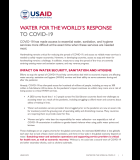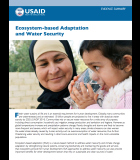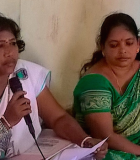Empowering New Generations to Improve Nutrition and Economic Opportunities (ENGINE)
A major part of ENGINE’s technical assistance work was to promote nutrition-sensitive agriculture techniques and livestock management to increase production and consumption of diverse foods (e.g., homestead production of horticultural crops and livestock such as chicken, demonstration of agronomic practices and preparation of diversified foods at farmers training centers and schools, and public-private partnership to avail high productive chicken). The project also supported most vulnerable households (more than 90% are women) with nutrition sensitive livelihoods (e.g., provision and training on poultry, small livestock, and homestead gardening vegetables and organize into saving groups). Furthermore, it promoted WASH activities for households with children less than 2 years to prevent diarrhea and improve child nutritional status (e.g., handwashing and tippy tap, sanitation marketing of latrine slab, households water filter, locally appropriate play mat, and separation of livestock and young children).
ENGINE aimed to mainstream gender in all of its nutrition activities and implement labor saving technology for women. It also Implemented a rigorous research strategy in collaboration with local universities to support and guide effective nutrition policies and practices to reduce undernutrition (e.g., impact evaluation, operations research, documentation of lessons learned).
Activity Description
Activities for this project included strengthening existing nutrition multi-sector coordination and supported development and revision of nutrition policies, guidelines and standards. The project integrated nutrition into pre-service education of health and agriculture and build capacity of academic institutions to address nutrition and food security.
It also built capacity of health facility staff and frontline health and agriculture workers to provide high quality nutrition services, especially during the first 1000 days (e.g., nutrition training, supportive supervision, mentoring, quality improvement, supply management, and data for decision-making). In addition, it promoted optimal maternal and infant young child feeding practices and dietary diversity through dynamic communication channels (e.g., individual counseling, innovative Enhanced Community Conversation (ECC), mNutrition, radio drama, and role models) and cooking demonstration.
Expected Outcomes
ENGINE seeks to:
- Strengthen the capacity to institutionalize nutrition programs and policies
- Improve quality and delivery of nutrition services
- Improve community-based nutrition care practices
- Adopt a rigorous and innovative research and learning agenda
Actual Outcomes
ENGINE has:
- Prepared nutrition core competencies for nutrition, health, and agriculture professionals and made integration of nutrition into 52 nutrition, agriculture, and health courses in all of the 12 PSE institutions over the last three and a half years.
- Supported the establishment of Nutrition Academic Center of Excellence at Hawassa University.
- Trained 22,440 health and agriculture specialists and managers on Maternal, Infant and Young Child Nutrition (MIYCN), nutrition counselling skills and nutrition-sensitive agriculture/livelihood.
- Reached 3.2 million children under five with nutrition specific interventions.
- Scaled up its innovative and multi-sectoral Enhanced Community Conversation (ECC) and community level new SBCC materials, and reached 12,500 mothers, fathers and mother-in-laws.
- Provided short-term agricultural sector productivity or food security training to 93,301 individuals
- Recently scaled up its WASH interventions to 10 woredas.






